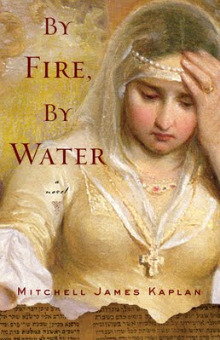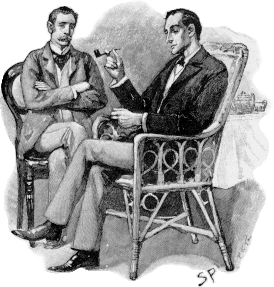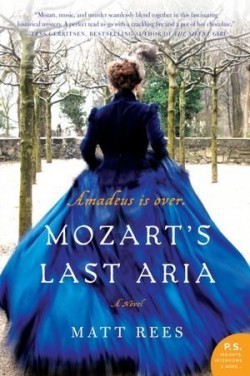Matt Rees's Blog - Posts Tagged "spain"
Krimis, polars, gialli: what crime novels are called around the world
Sometimes people talk about crime novels as though they were all the same. The sheer number of different names for variants of the crime novel proves that isn’t true.
Police procedural. Mystery novel. Thriller. Cosy. Exotic detective. Supernatural. I used to think there was little real difference, but then my UK publisher told me he wanted to change the title of my first novel “The Collaborator of Bethlehem.” He thought it sounded like a thriller (which men typically buy) and he wanted it to be clear that it was a mystery (so that women would buy it.) He changed the title in Britain to “The Bethlehem Murders.” I had to acknowledge that he was right: it sounds more like a mystery, doesn’t it.
And that’s only in English.
As I travel around to promote my books in different countries (I’m published in 22 countries these days), I’ve noticed that there are interesting variations on the names we use in English for crime novels. Some of them are quite entertaining, and some of them tell us something revealing about how the genre developed in that country.
Take Italy. Mystery novels there are called “gialli,” or yellows. That’s because traditionally the genre was published with a yellow cover. Even today the mystery shelves of Italian bookshops are largely yellow.
Color is the theme also in Spain, where crime novels are “novelas negras,” black novels. According to a source of mine on the literary desk of El Pais, the big Spanish newspaper, this harks back to the old “Serie noire” of French publisher Gallimard. That series introduced the crime novel to Spain. So noir, or black, became the identifying color for a crime novel.
A “roman noir,” black novel, is also one of the ways of referring to a crime novel in France, because of that Gallimard series. But the most common slang for a mystery in French is “un polar.” It’s a contraction of “roman policier,” police novel, and was first recorded in 1968. If you ask most French people to explain the origin of the word “polar,” they can’t tell you: the abbreviation has become so common, they’ve forgotten its rather simple derivation.
Germany (as well as the Scandinavian countries) calls a crime novel “ein Krimi,” short for the word Kriminelle, criminal. No surprise there. It’s a catch-all for thrillers and detective stories of all kinds.
There is, however, an amusing sub-genre in German. In English, the “cosy” refers to Miss Marple-type novels in which the detective is an amateur, usually a lady (not just a woman), probably an inhabitant of a quaint village, investigating a murder in a country house or a vicarage.
The Germans call these cosies “Häkel-Krimis“. Miriam Froitzheim, who works at my German publisher C.H. Beck Verlag in Munich, translates this as “Crochet Crime Novels.” Because, as she puts it, the detective “puts her crochet gear away to solve the murder.”
I’ll keep scouting for interesting ways of describing crime novels around the world. But if you know of some others, tell me about them.
Police procedural. Mystery novel. Thriller. Cosy. Exotic detective. Supernatural. I used to think there was little real difference, but then my UK publisher told me he wanted to change the title of my first novel “The Collaborator of Bethlehem.” He thought it sounded like a thriller (which men typically buy) and he wanted it to be clear that it was a mystery (so that women would buy it.) He changed the title in Britain to “The Bethlehem Murders.” I had to acknowledge that he was right: it sounds more like a mystery, doesn’t it.
And that’s only in English.
As I travel around to promote my books in different countries (I’m published in 22 countries these days), I’ve noticed that there are interesting variations on the names we use in English for crime novels. Some of them are quite entertaining, and some of them tell us something revealing about how the genre developed in that country.
Take Italy. Mystery novels there are called “gialli,” or yellows. That’s because traditionally the genre was published with a yellow cover. Even today the mystery shelves of Italian bookshops are largely yellow.
Color is the theme also in Spain, where crime novels are “novelas negras,” black novels. According to a source of mine on the literary desk of El Pais, the big Spanish newspaper, this harks back to the old “Serie noire” of French publisher Gallimard. That series introduced the crime novel to Spain. So noir, or black, became the identifying color for a crime novel.
A “roman noir,” black novel, is also one of the ways of referring to a crime novel in France, because of that Gallimard series. But the most common slang for a mystery in French is “un polar.” It’s a contraction of “roman policier,” police novel, and was first recorded in 1968. If you ask most French people to explain the origin of the word “polar,” they can’t tell you: the abbreviation has become so common, they’ve forgotten its rather simple derivation.
Germany (as well as the Scandinavian countries) calls a crime novel “ein Krimi,” short for the word Kriminelle, criminal. No surprise there. It’s a catch-all for thrillers and detective stories of all kinds.
There is, however, an amusing sub-genre in German. In English, the “cosy” refers to Miss Marple-type novels in which the detective is an amateur, usually a lady (not just a woman), probably an inhabitant of a quaint village, investigating a murder in a country house or a vicarage.
The Germans call these cosies “Häkel-Krimis“. Miriam Froitzheim, who works at my German publisher C.H. Beck Verlag in Munich, translates this as “Crochet Crime Novels.” Because, as she puts it, the detective “puts her crochet gear away to solve the murder.”
I’ll keep scouting for interesting ways of describing crime novels around the world. But if you know of some others, tell me about them.
Donate my books to Gaza
The Washington Report on Middle East Affairs is organizing donations of books to libraries and schools in the Gaza Strip. I'm delighted to learn that my Palestinian crime novels are included on the list, which I should add includes works by many of my favorite Arab and Muslim writers (I'm a big fan of Tariq Ali's series of novels about Muslim history, in particular The Shadow of the Pomegranate Tree, which recalls the last days of al-Andalus in medieval Spain.)
You may wonder if people sitting in the ruins of Gaza would want to read crime stories about Palestinians. Actually I've received many emails from Palestinians and other Arabs thanking me for showing the reality of the situation in which they live. I hope the people of Gaza will read my books and feel happy to know that their plight is portrayed in as accurate a manner as possible for readers all around the world -- rather than in the stereotyped terms often used in newspaper reports.
I hope you'll consider participating in the donation scheme. Gaza was truly flattened in the war that took place there at the turn of the year. Whether you consider yourself "pro-Palestinian" or "pro-Israeli," it's clear that a better life for the people of Gaza will contribute to a better, more peaceful life for their neighbors. And despite all the other necessities lacking in Gaza, books are one thing no one should have to live without.
You may wonder if people sitting in the ruins of Gaza would want to read crime stories about Palestinians. Actually I've received many emails from Palestinians and other Arabs thanking me for showing the reality of the situation in which they live. I hope the people of Gaza will read my books and feel happy to know that their plight is portrayed in as accurate a manner as possible for readers all around the world -- rather than in the stereotyped terms often used in newspaper reports.
I hope you'll consider participating in the donation scheme. Gaza was truly flattened in the war that took place there at the turn of the year. Whether you consider yourself "pro-Palestinian" or "pro-Israeli," it's clear that a better life for the people of Gaza will contribute to a better, more peaceful life for their neighbors. And despite all the other necessities lacking in Gaza, books are one thing no one should have to live without.
Published on July 04, 2009 02:09
•
Tags:
bethlehem, collaborator, gaza, grave, murders, omar, palestine, palestinians, saladin, samaritan-s, secret, spain, yussef
Read international crime fiction instead, World Cup fans
 World Cup fans, don’t fear hours of emptiness. Take up a work by an international crime fiction author. It’s the perfect replacement for your lost fix – and it’s a lot better for your soul, too.
World Cup fans, don’t fear hours of emptiness. Take up a work by an international crime fiction author. It’s the perfect replacement for your lost fix – and it’s a lot better for your soul, too.Here’s why. As the World Cup unfolded over the last month, newspapers all over the globe were filled with articles in which journalists extrapolated from aspects of the play and team-make up of various countries to draw lessons about the politics and sociology of those same nations.
Thus we learned that the Germans were successful not because their coach is a very smart tactician, but because they were multiethnic. We found that England’s loss was rooted in the shameless cash-fest of their football league, rather than the coach’s inability to counter German tactics and the evidence that the team’s players (who’re also pretty multiethnic) are simply a notch dumber than those of many other countries. Finally we thrilled to discover that there’s hope for the future of Spain, even if the country’s high court ruled this week that Catalans can’t refer to themselves as a “nation.” There were Catalans on the team that won in the final, the newspaper wrote, and so everything in Espana is /chévere/ (as the Spanish say when they’re feeling good) after all.
Naturally all this is the result of the feeble maneuvers of journalists and their need to come up with enough “theme” stories to keep editors from questioning the expense of sending a reporter to South Africa to write about things which are free on everybody’s television set.
The popularity of international crime fiction, however, has been in its ability to provide a window into a society in an entertaining format. Like football. Only real (even if it is fiction.)
Read the rest of this post on my blog The Man of Twists and Turns.
Published on July 16, 2010 03:19
•
Tags:
barcelona, bingo, catalans, crime-fiction, england, france, gaza, germans, iniesta, journalism, manuel-vazquez-montalban, middle-east, new-york-times, palestine, palestinian, roger-cohen, south-africa, spain, world-cup, xavi
The Inquisition, the Jews of Andalus, and Columbus: 'By Fire By Water' review
 Historical novels vie with crime and romance novels for the titles of most derided and most widely read literature. They've had a bad rap ever since the 19th century, when the swashbucklers of Alexandre Dumas looked pretty wooden next to Dickens, and cartoonish in comparison to the depth of Victor Hugo or George Eliot. There have always been marvelous exceptions, such as Mary Renault's amazing novels of ancient Greece, but for much of the last century, historical fiction was seen as pure escapism, barely distinguishable from bodice-ripping romance.
Historical novels vie with crime and romance novels for the titles of most derided and most widely read literature. They've had a bad rap ever since the 19th century, when the swashbucklers of Alexandre Dumas looked pretty wooden next to Dickens, and cartoonish in comparison to the depth of Victor Hugo or George Eliot. There have always been marvelous exceptions, such as Mary Renault's amazing novels of ancient Greece, but for much of the last century, historical fiction was seen as pure escapism, barely distinguishable from bodice-ripping romance.Since the publication of "The Name of the Rose," in 1980, the genre has gained gradual legitimacy. Much snobbishness still abounds, however, over the commercial success of historical fiction and the perceived tendency of genre writers to simplify bygone eras. Still, though Umberto Eco's book has sold 10 million copies, it undoubtedly takes some brains to appreciate it, and no one could accuse Eco of writing simplistic books. Literary highbrows came down to mix with the hoi polloi long enough to award last year's Man Booker Prize, the most notable British book award, to Hilary Mantel's "Wolf Hall," a wonderful evocation not just of Tudor England but of the contrast between a steely self-made man and a bunch of spoiled, weak upper-class brats. The legitimacy of the genre progresses this year with the deification in both the United Kingdom and the United States of David Mitchell, whose novel about Japan in 1799, "The Thousand Autumns of Jacob de Zoet," is a candidate for the Booker and who, even before this latest work, has routinely been referred to as a genius by reviewers.
Read the rest of this post on my blog The Man of Twists and Turns.
Published on September 03, 2010 04:45
•
Tags:
abdel-aziz-rantisi, alexandre-dumas, andalus, by-fire-by-water, charles-dickens, crime-fiction, david-mitchell, gaza, george-eliot, hamas, hilary-mantel, historical-fiction, inquisition, islam, jews, judaism, mary-renault, mitchell-james-kaplan, muslims, palestinians, reviews, romance-fiction, spain, the-name-of-the-rose, umberto-eco, victor-hugo, wolf-hall, zaragoza
Krimis, gialli, polars: What crime novels are called around the world
 People talk about crime novels as though they were all the same. The sheer variety of names for sub-genres of the crime novel proves that isn’t true. Police procedural. Mystery novel. Thriller. Cosy. Exotic detective. Supernatural.
People talk about crime novels as though they were all the same. The sheer variety of names for sub-genres of the crime novel proves that isn’t true. Police procedural. Mystery novel. Thriller. Cosy. Exotic detective. Supernatural.I used to think there was little real difference, but then my UK publisher told me he wanted to change the title of my first novel “The Collaborator of Bethlehem.” He thought it sounded like a thriller (which men typically buy) and he wanted it to be clear that it was a mystery (so that women would pick it up.) He changed the title in Britain to “The Bethlehem Murders.” It sounds more like a mystery, although it always seems a little cosier to my ear than it ought. My original title sounds much closer to the gritty atmosphere of Bethlehem in the intifada that I recreated in that novel. I suppose he was right, because the book was nominated for five prizes in the US, but in the UK it actually won one: a Crime Writers Association Dagger.
In any case that’s only how the book was titled in English. My Spanish publisher called it "The Teacher of Bethlehem," as did my Italian editor. In German it's "The Traitor of Bethlehem." Etcetera.
When my second novel "A Grave in Gaza" came out, my London publisher was at it again. "Gaza makes me think of nonfiction," he said. So in the UK the book was called "The Saladin Murders," which sounds like a mystery, after all. (I used the name of the Saladin Road that runs the entire length of the Gaza Strip and which plays a big role in the action of the novel.)
As I travel around to promote my books in different countries (I’m published in 25 languages these days), I’ve noticed that it isn't only the titles of individual books that get different names. The entire genre of crime fiction gets some interesting and handy nicknames depending on where you are. Some of them are quite entertaining and often tell us how the genre developed in that country.
Take Italy. Mystery novels there are called “gialli,” or yellows. That’s because traditionally the genre was published with a yellow cover. Even today the mystery shelves of Italian bookshops are largely yellow, at least down the spine. Color is the theme also in Spain, where crime novels are “novelas negras,” black novels. According to a source of mine on the literary desk of El Pais, the big Spanish newspaper, this harks back to the old “Serie noire” of French publisher Gallimard. That series introduced the crime novel to Spain. So noir, or black, became the identifying color for a crime novel.
A “roman noir,” black novel, is also one of the ways of referring to a crime novel in France, because of that Gallimard series. But the most common slang for a mystery in French is “un polar.” It’s a contraction of “roman policier,” police novel, and was first recorded in 1968. If you ask most French people to explain the origin of the word “polar,” they can’t tell you: the abbreviation has become so common, they’ve forgotten its rather simple derivation.
Germany (as well as the Scandinavian countries) calls a crime novel “ein Krimi,” short for the word Kriminelle, criminal. No surprise there. It’s a catch-all for thrillers and detective stories of all kinds.
There is, however, an amusing sub-genre in German. In English, the “cosy” refers to Miss Marple-type novels in which the detective is an amateur, usually a lady (not just a woman), probably an inhabitant of a quaint village, investigating a murder in a country house or a vicarage. The Germans call these cosies “Häkel-Krimis“ -- “Crochet Crime-Novels.” Because the detective puts away her crocheting to solve the murder.
I’ll keep scouting for interesting ways of describing crime novels around the world. But if you know of some others, tell me about them.
International Crime Fiction Blog interview
 Scene of the Crime highlights Matt
Scene of the Crime highlights MattThe terrific international crime fiction blog Scene of the Crime features an interview with me entitled "Tough work but somebody's got to do it." That's a reference to the Italian locations and research for the thriller I'm writing right now. The interview looks at my original Palestinian crime novels, but I also talk about how I got the idea for my more recent historical crime fiction about Mozart and Caravaggio. The great J. Sydney Jones (check out his absorbing historical crime fiction) runs the blog and introduces the piece thus:
It is a real pleasure to have Matt Rees back on Scene of the Crime. He was one of the first writers I had on the site, three-and-a-half years ago. Matt is the old-fashioned man of letters type: former Middle East correspondent for The Scotsman and Newsweek, he was Time’s Jerusalem bureau chief during the Palestinian intifada. Read more.



